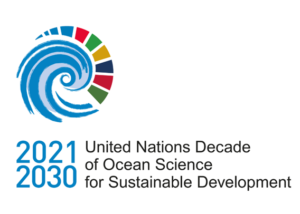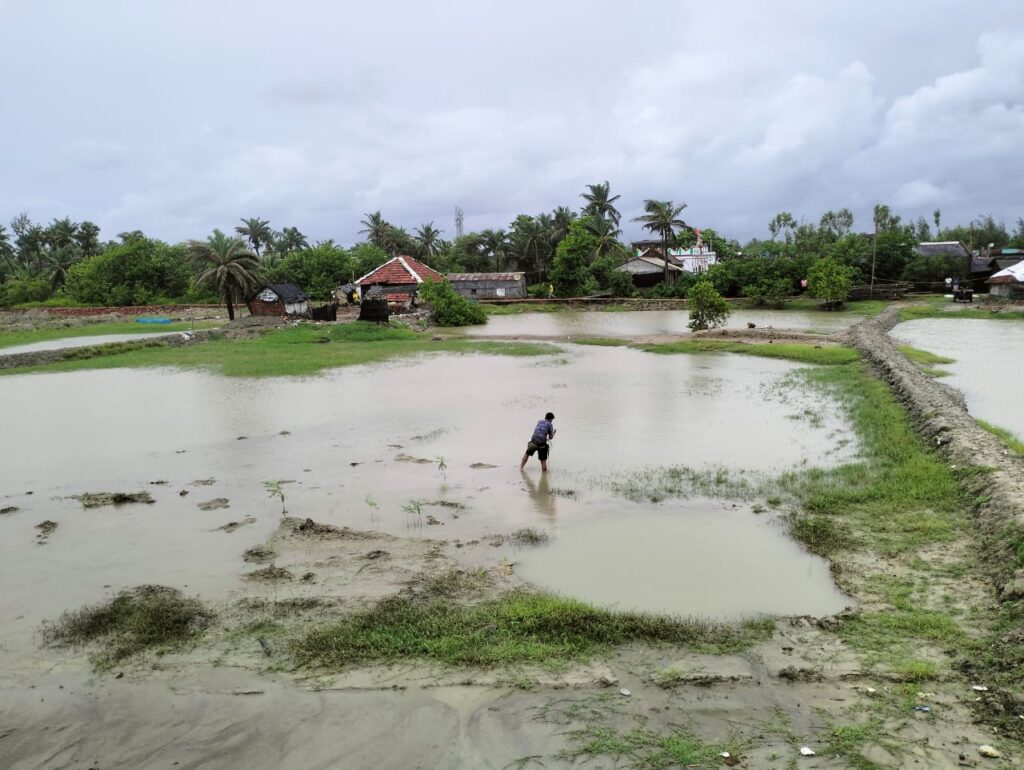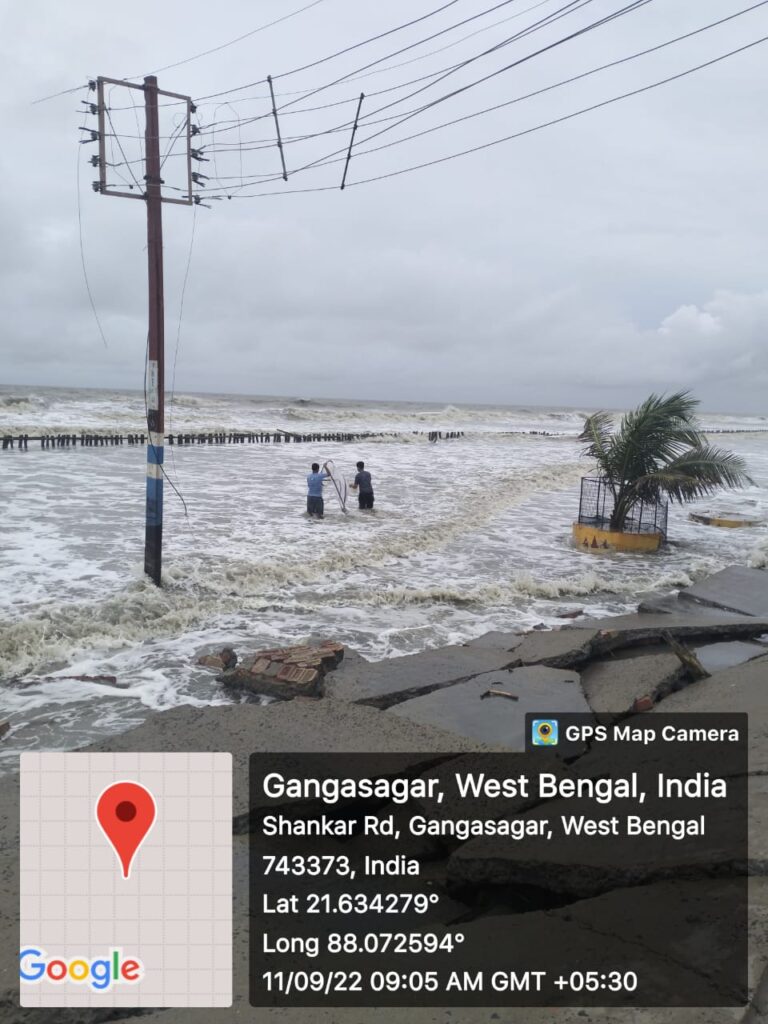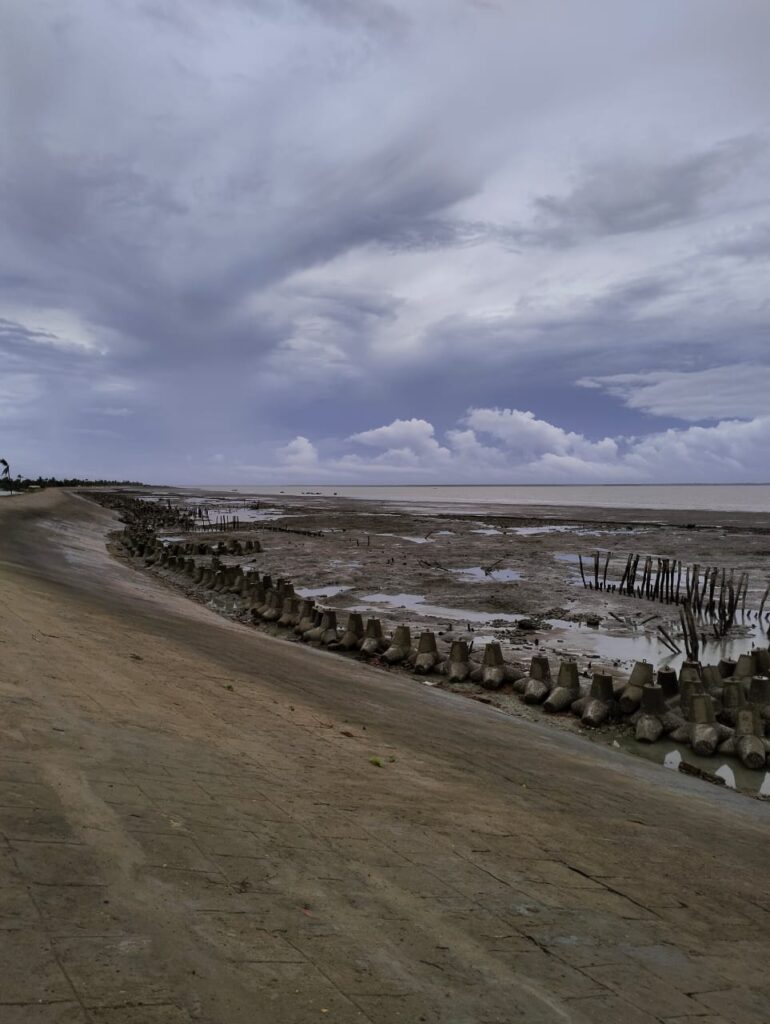Cyclone
The lower end of the Ganges delta is one of the most vulnerable place on earth in terms of cyclones. The Sundarbans are a unique place where humans, tigers, mangroves and plethora of biodiversity co-exists. That existence is, however, under threat from periodic cyclones which becomes more intense than ever. India does not have any cyclone monitoring program nor does the Ganges delta, therefore, the endorsed project would essentially do the short- and long-term assessments of the ecological impacts of the periodic cyclone mediated disruptions of the food web by studying the following
- Biodiversity (Plankton, Benthos, Fish, mangrove): changes of molecules to community that are results of periodic cyclone mediated stress would be assessed by conducting field surveys and laboratory works.
- Biogeochemical cycle (nutrients and carbon cycle): high resolution in situ monitoring of the nutrients and carbon cycle of estuaries.
- Livelihood options (agriculture and fisheries): assessment of cyclone mediate changes in the agriculture and aquaculture industries primarily as a consequence of inundation which brings salinity stress. And how those industries are coping with such stressor and strategizing for the future.
- Living standards (cyclone forced refugees): socio-economic surveys among those who are cyclone hit and are forced to shift from their native place.
- Knowledge sharing: Involving local schools, regional college and universities, and local communities a network would be built for citizen scientists and volunteers, who would be involved in the collection of some first-hand records of cyclone as well as promotion of the cyclone research in the region.
The work would generate knowledge that would be shared with scientists, students, policy makers for better monitoring and preparedness to coastal hazards.





